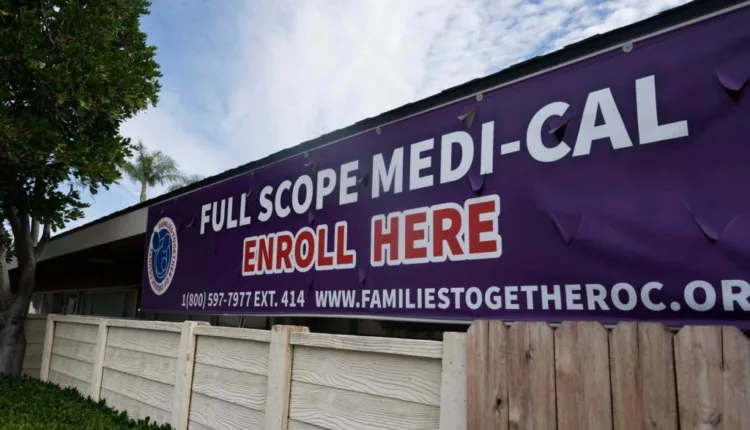
Is Health Care Affordable for California’s Undocumented Immigrants?
TL/DR –
California has extended full-scope Medi-Cal benefits to undocumented immigrants as of January 1, 2024. This expansion could potentially add an additional 700,000 people to the program, costing the state around $3.1 billion annually, with the cost placed on California’s taxpayers due to federal Medicaid not covering expenses for services offered to unlawfully residing immigrants. Critics argue the expansion will strain already limited resources, with Medi-Cal providers receiving approximately 70% of the reimbursement rate that Medicare pays, resulting in fewer doctors accepting Medi-Cal patients, and a lower quality of care.
Full Medi-Cal Benefits Extended to Undocumented Immigrants in California
Starting January 1, 2024, undocumented immigrants in California will be eligible for full scope Medi-Cal benefits, extending beyond emergency room visits and pregnancy-related care. All residents, regardless of immigration status, who meet the income eligibility criteria can access services like primary care, specialist visits, and prescription drugs.
This policy started in 2016 when children under 19 were granted full-scope Medi-Cal benefits. The program expanded to include young adults up to 25 in 2020, and in 2022, it was further extended to anyone 50 or older. Since January 2024, adults aged 26-49 have been entitled to the same benefits as low-income Californian citizens and legal residents.
Approximately one-third of the state population, or 14 million people, are currently on Medi-Cal. The latest expansion is expected to add 700,000 more and will cost around $3.1 billion annually. As Medi-Cal is an entitlement program, everyone who meets the eligibility criteria is entitled to enrol and have their medical needs covered by the program.
The recent expansion was approved via SB 184 in 2022, a lengthy budget trailer bill. However, as the federal Medicaid program doesn’t allow payments to states for medical assistance furnished to undocumented immigrants, California taxpayers will bear the cost of this new entitlement.
Despite the program’s expansion, many Californians depend on Medi-Cal for healthcare. The low reimbursement rates for providers have led to an increase in wait times and, subsequently, lower survival rates for cancer patients on Medi-Cal. A complaint filed by MALDEF in 2017 argued that Medi-Cal’s low reimbursement rates violated federal Medicaid law, which requires reasonable access to care for all eligible individuals.
With the program’s recent expansion, there are now 14 million Californians on Medi-Cal, and it’s estimated that an additional 700,000 more will enrol.
Assemblymember Bill Essayli introduced Assembly Bill 1783 to remove all taxpayer funding for healthcare for illegal immigrants in the California state budget. Despite this, Gov. Gavin Newsom remains committed to the recent expansion of Medi-Cal, upholding his belief in universal healthcare as a fundamental right.
Currently, California is facing a $68 billion budget shortfall. On Jan. 10, the Assembly Revenue and Taxation Committee held a hearing on a “wealth tax” proposal, AB 259, accompanied by a constitutional amendment, ACA 3, that would allow the Legislature to define wealth and tax it.
For those interested, you can watch the hearing at arev.assembly.ca.gov/hearings.
—
Read More Health & Wellness News ; US News
